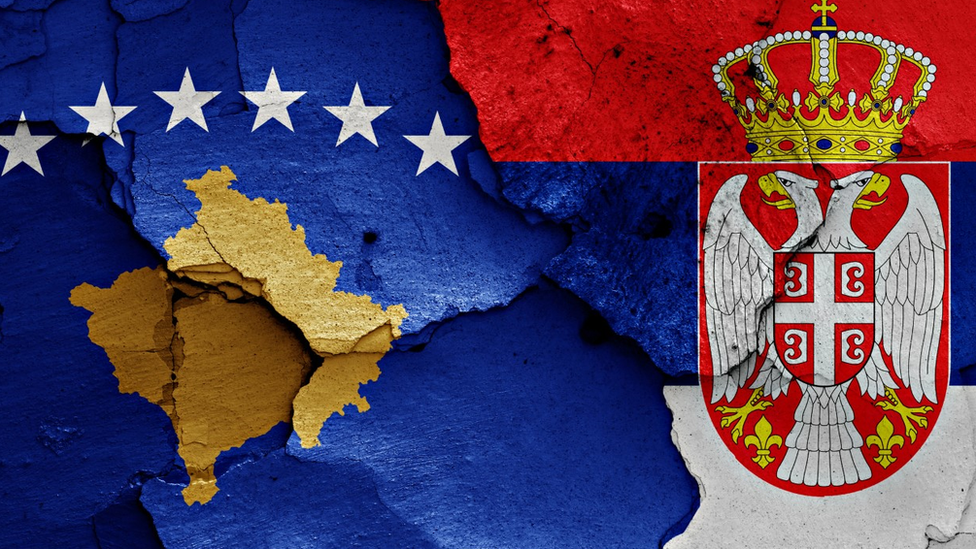Slovenia Covid: Thousands to get lockdown fine refunds
- Published
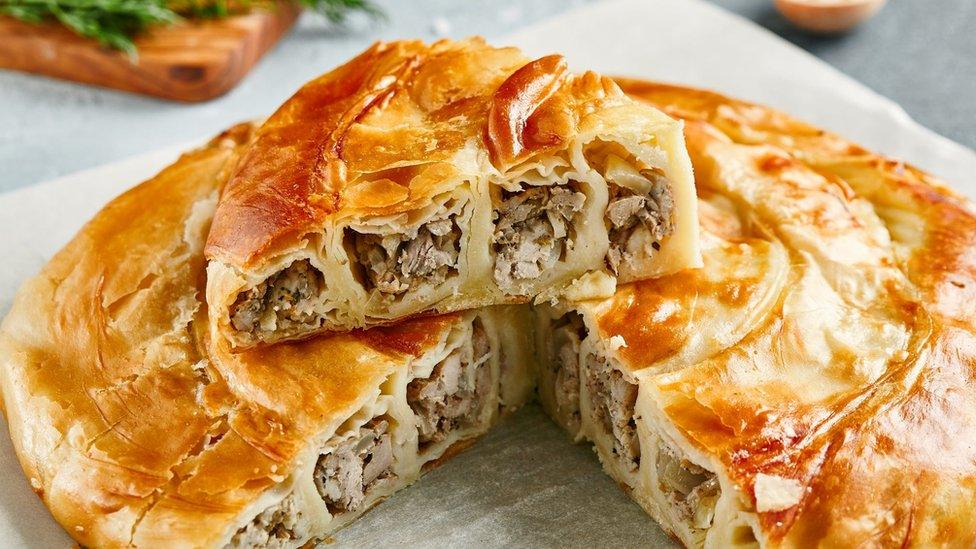
It was, perhaps, the most expensive fast-food item ever consumed in Ljubljana.
This particular burek - a Balkan cross between a pie and pasty - cost a famished delivery rider €400 (£350). All because he sat down on the steps of a church to tuck into his snack during the Slovenian capital's first Covid lockdown.
The scene was caught on camera. And the photo of police surrounding a worker who was taking food to others - for the crime of slipping of his mask and having a quick bite of his own - quickly became a cause célèbre.
It was seen as a symbol of the harsh manner in which the authorities were enforcing Covid restrictions.
Now that rider will be getting his money back - and his police record cleared. The same goes for more than 60,000 other Slovenians who fell foul of anti-Covid measures.
Police issued almost €6m (£5.2m) worth of fines over a period of more than two years. But as of this week, legislation to refund that money is coming into force.
It fulfils a pledge made by Prime Minister Robert Golob before his centre-left Freedom Movement was elected last year.
The previous right-wing administration, led by former prime minister Janez Janša, had imposed tight restrictions on freedom of movement and assembly.
At various points, Slovenians were not allowed to travel beyond their local areas - and a night-time curfew was in place.
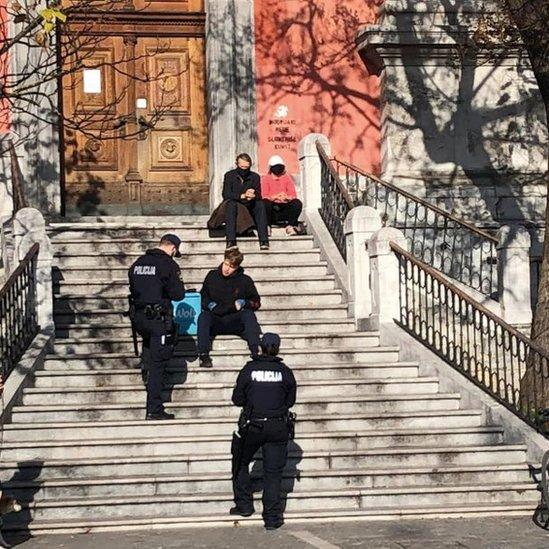
A delivery driver was fined €400 for breaking a face mask mandate which applied outdoors
The hungry food delivery driver was one of many to be fined for breaking a face mask mandate that applied outdoors as well as inside. And doing anything without a Covid certificate became nigh-on impossible.
The Constitutional Court struck down all these measures. But it has taken until now for the authorities to reverse the punishments imposed on those who were deemed to have transgressed.
Environmentalist Rok Rozman, who received multiple fines for taking part in protests, feels vindicated.
"The decrees they used to impose the fines were not based in law," he says.
"The government knew that - and if this means they now have to give the money back, that's how it goes. If you live in a country with the rule of law, that should apply to everyone."
That perspective is shared by the current administration.
Justice Minister Dominika Švarc Pipan said repaying the fines would help to rebuild Slovenians' trust in the rule of law, "which was significantly undermined by the use of excessive and unconstitutional repression during the pandemic."
But the restitution legislation has not received a universal welcome.
One MP from Mr Janša's SDS party said repaying the fines "spits in the face of all those health workers who fought tirelessly for the lives of our fellow citizens".
Related topics
- Published9 May 2020
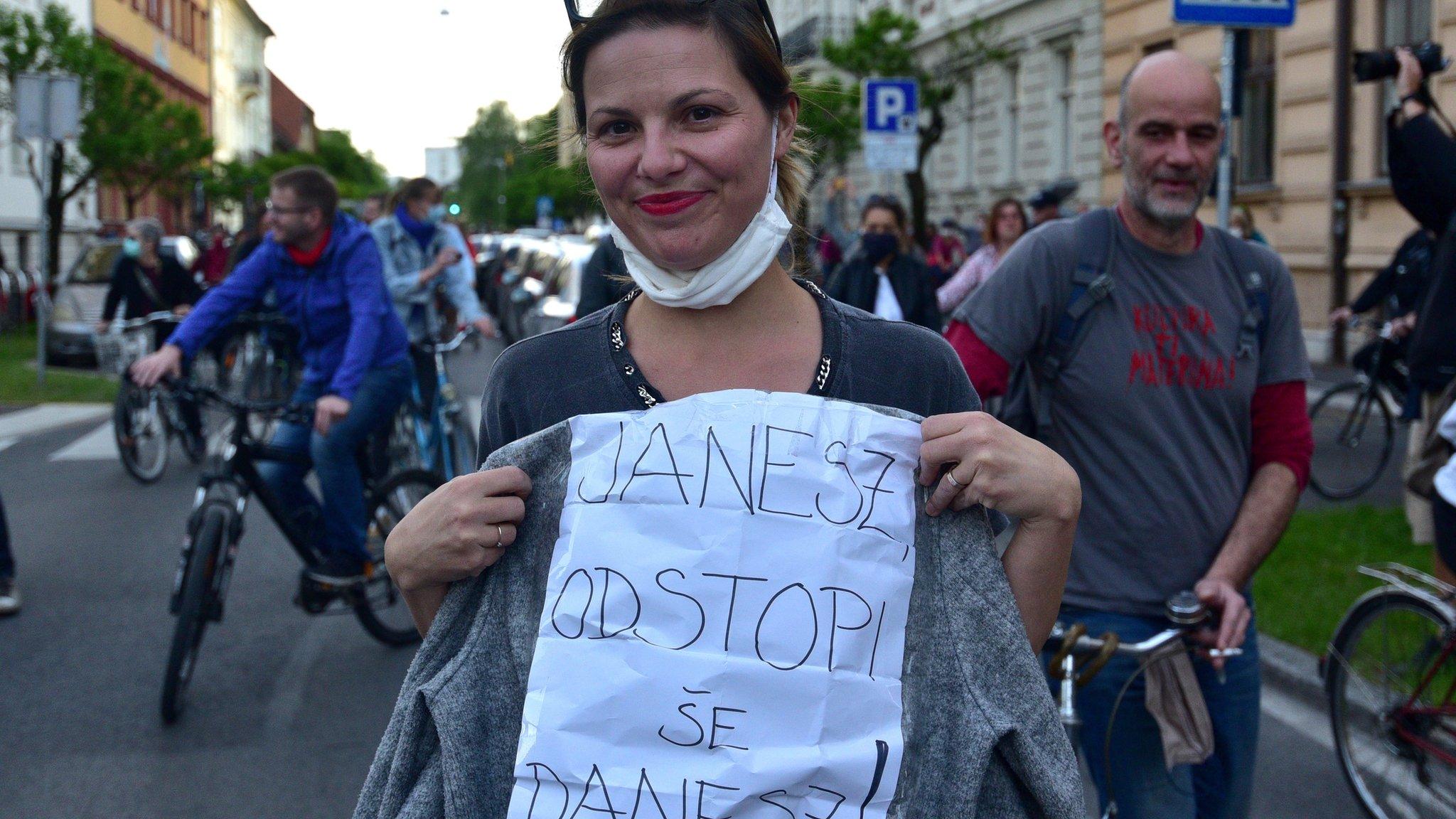
- Published28 June 2023
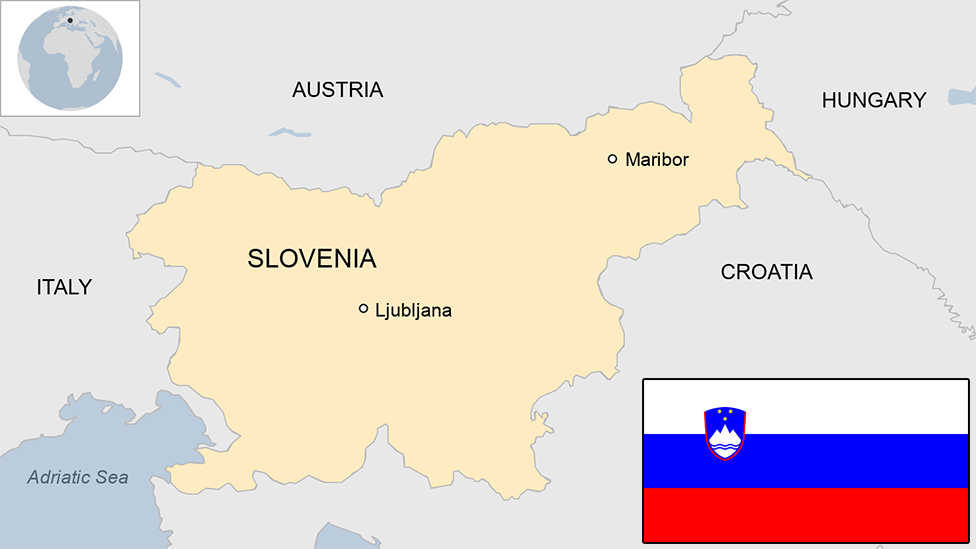
- Published2 November 2023
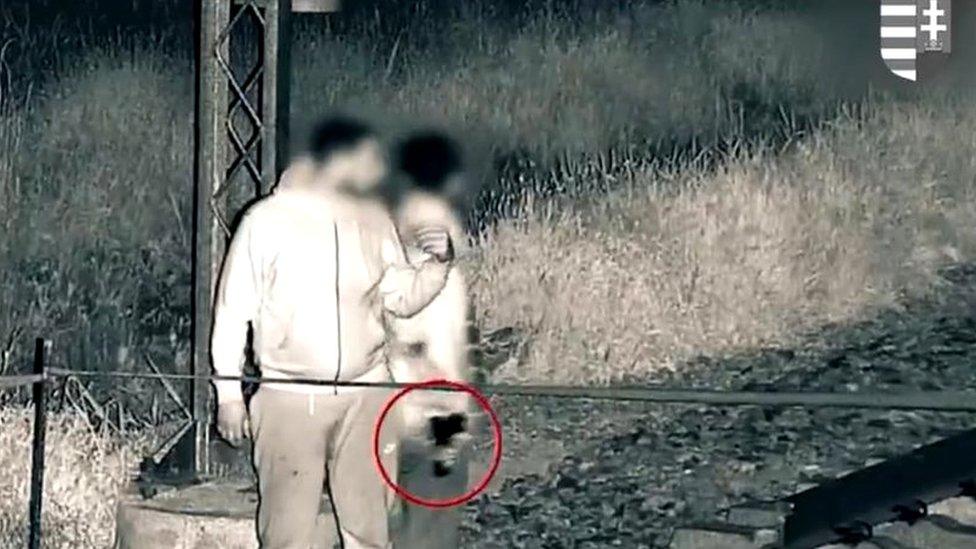
- Published2 October 2023
